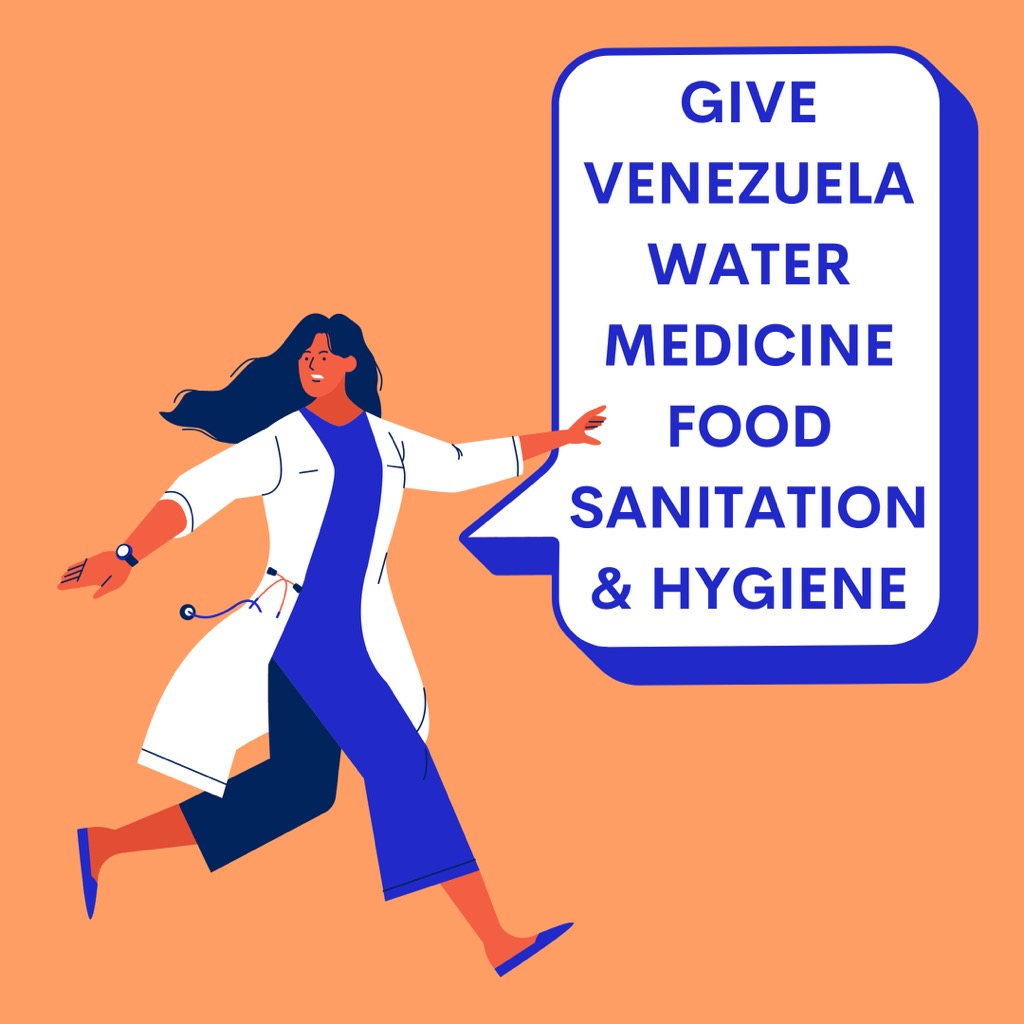
Raghav Pandya explains the rapidly growing concerns over Venezuela’s health dilemma and how the government’s denial of the crisis violates basic human rights.
By Raghav Pandya Credit: The Myriad News
COVID-19 oppresses citizens of Venezuela
Venezuela is “struggling to give its people what most people take for granted: life. Since 2012, the health care system is” so impoverished children are malnourished, pregnant mothers give birth at home, hospitals function without electricity and running water and diseases preventable by vaccines are at an all-time high. The crisis began when Nicolás Maduro became president and took over the government. Oil, the top-grossing business for the country, started to plummet as investments and efforts decreased. Hyperinflation, violence, hunger and medicine shortages are the backbone of this catastrophe.
It is not COVID-19 which broke Venezuela like every other country, but other common diseases like measles, diphtheria, tuberculosis and malaria. 70 percent of the hospitals do not have testing capabilities for coronavirus, which makes it hard for an accurate representation of the country’s number of cases. Some patients are forced to bring their own food and medical supplies like syringes, since hospitals cannot provide them. Additionally, very few hospitals have working machines and sanitary conditions but even those are only affordable by the wealthy. The lack of affordability poses another problem since poverty is a rising issue.
One report from BBC News stated patients did not use restrooms in fear of contracting another disease. Dr. Paul Spiegel, the editor of the John Hopkins Bloomberg School of Public Health, described the lack of action from the government by stating “the international community must respond because millions of people are suffering.” The country is struggling to the extent to which other countries stepping in is the only way to resolve the matter.
The government worsens the problem
The government of Venezuela, which is the root cause of the collapse, did not release any epidemiological reports since 2016, back when Antonieta Caporale, the health minister, shared information regarding the mortality rate. Caporale “got fired due to this, which shows how reserved the government is in sharing its data. Because of the lack of government support along with inflation, sanitization and decreased care, chances of survival are quite slim in hospitals and clinics.”
The decentralized government of Venezuela functions with multiple levels of power. The overall level focuses on services toward education and disease prevention and control. Although this may be the main focus, the government went astray from addressing national health issues and the need for medical assistance. It is not easy to present issues like these anymore because COVID-19 became the central attention.
Disinfectants are too expensive since salaries lost value. However, money is not the only issue. Water shortages are quite common, especially in the capital city of Caracas. Instead of providing funds and helping desperate people, the government is actually making the economy even worse. For example, the government deserted one of its foreign exchange rates some time ago, which helped the import for food and medicine.
More so, President Nicolás Maduro opposes humanitarian aid which restricts shipments of medicine including first aid and food. Not only is the government not supporting their own country, but they are also restricting donations from foreign countries. This limit is causing the prices of drugs to rise along with food and other needs. There are no policies for disease prevention and control which makes it near impossible to fix the country’s health crisis.
The problem is affecting other countries
The health crisis is not limited to Venezuela but is also affecting the rest of South America. More than 4.9 million people migrated from the country in hope of a better life. Colombia and Peru saw the highest increase in Venezuelans with 1.8 million in Colombia and 861,000 in Peru. Many took diseases with them when they migrated.
In 2018, a measles outbreak from Venezuela spread to 14 countries. Some experts are saying this mass migration will soon surpass the number from the Syrian refugees’ crisis. The problem could become even worse if Venezuela experiences a coronavirus outbreak. All of Latin America would be at risk.
The world’s plan to help Venezuela
Foreign countries taking action is a must, but deciding on what to do when the options are limited is impeding Venezuela’s recovery. Many countries like the United States and Russia, are sending aid and supplies but because of the restricted government system, it is difficult for the supplies to reach the core of Venezuela. In 2019, the U.N. recognized for the first time that the country needed humanitarian assistance. Out of the millions suffering, aid only reached 2.4 million. Countries like Colombia and Brazil also require funding to support Venezuelan exiles.
A solution to this crisis is for the government to establish national access for the U.N. so they can successfully send aid to all the people who need it. However, this is only possible if the Maduro government gets international pressure regarding their nation’s prosperity. If the government starts accepting international aid, then Venezuela will soon recover. The focus of the world is currently on COVID-19, so monetizing diplomatic missions for Venezuela’s health crisis will require lots of public attention. Dr. Alberto Paniz Mondolfi, a member of the Venezuelan National Academy of Medicine, stated in a report by NPR “International assistance will be crucial to ending the crisis…‘There is no way in which Venezuela could come out of this by its own.’”
